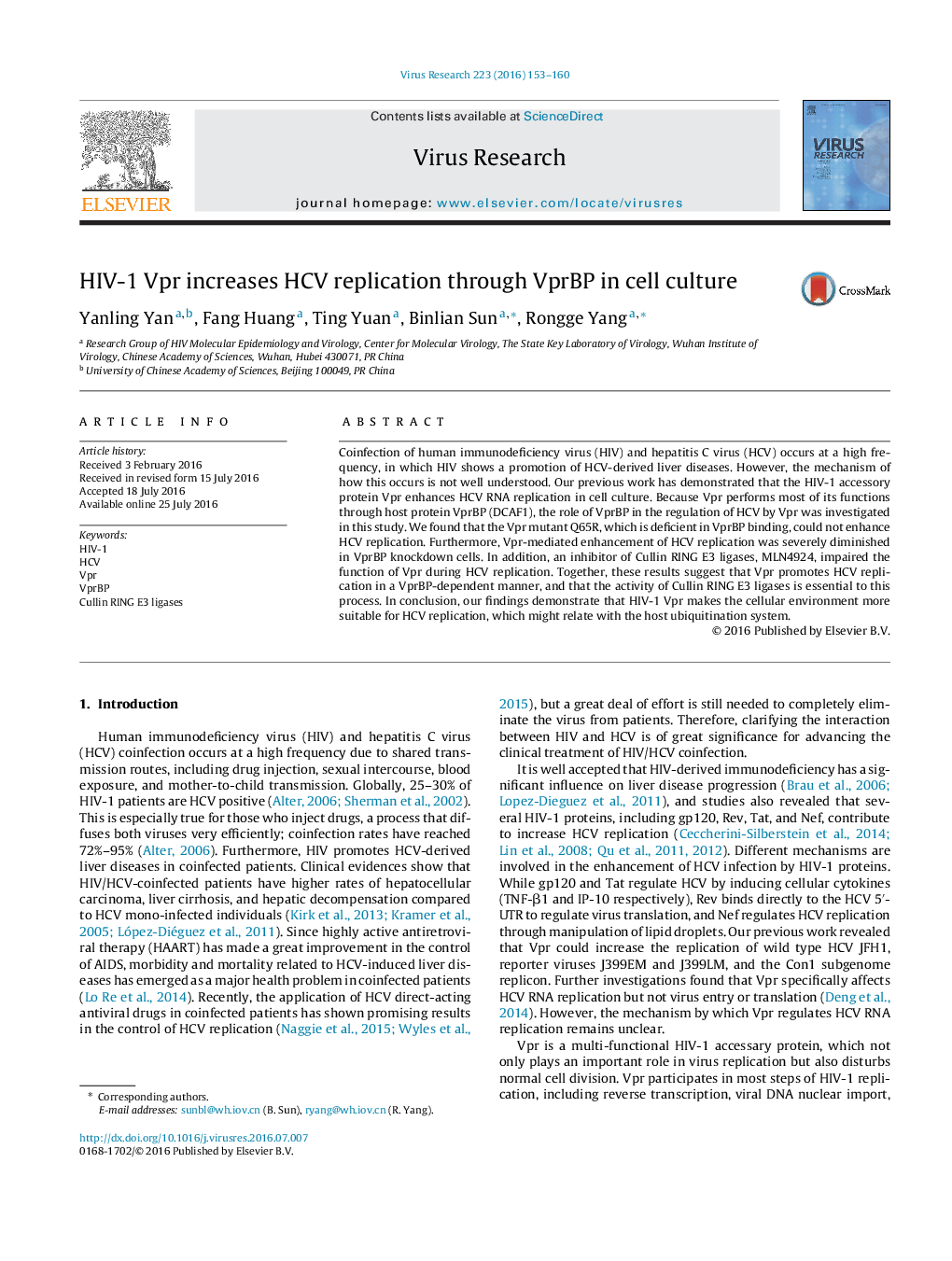| Article ID | Journal | Published Year | Pages | File Type |
|---|---|---|---|---|
| 6142027 | Virus Research | 2016 | 8 Pages |
Abstract
Coinfection of human immunodeficiency virus (HIV) and hepatitis C virus (HCV) occurs at a high frequency, in which HIV shows a promotion of HCV-derived liver diseases. However, the mechanism of how this occurs is not well understood. Our previous work has demonstrated that the HIV-1 accessory protein Vpr enhances HCV RNA replication in cell culture. Because Vpr performs most of its functions through host protein VprBP (DCAF1), the role of VprBP in the regulation of HCV by Vpr was investigated in this study. We found that the Vpr mutant Q65R, which is deficient in VprBP binding, could not enhance HCV replication. Furthermore, Vpr-mediated enhancement of HCV replication was severely diminished in VprBP knockdown cells. In addition, an inhibitor of Cullin RING E3 ligases, MLN4924, impaired the function of Vpr during HCV replication. Together, these results suggest that Vpr promotes HCV replication in a VprBP-dependent manner, and that the activity of Cullin RING E3 ligases is essential to this process. In conclusion, our findings demonstrate that HIV-1 Vpr makes the cellular environment more suitable for HCV replication, which might relate with the host ubiquitination system.
Related Topics
Life Sciences
Immunology and Microbiology
Virology
Authors
Yanling Yan, Fang Huang, Ting Yuan, Binlian Sun, Rongge Yang,
